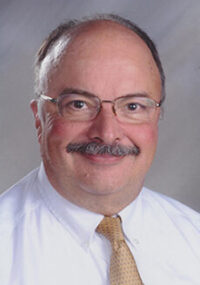God’s love for us is never in doubt, but the key question is do we love God?

By Tim Irwin
Twenty-Fourth Sunday in Ordinary Time/Sept. 15
Exodus 32:7-11,13-14; Psalm 51:3-4,12-13,17,19; 1 Timothy 1:12-17; Luke 15:1-32
St. Luke recounts the life, death, and resurrection of Jesus as a proclamation to the outcasts. Just who exactly were the outcasts? This week’s readings, the entire 15th chapter of Luke’s Gospel, recount Jesus teaching to two kinds of outcasts — “tax collectors and sinners.” Tax collectors may be of some historic interest to us, but does anybody see themselves in that role?
So how about sinners? Now we’re talking. I can see myself in that role, and I bet you can, too. The tax collectors and sinners were drawing close to Jesus, who then shares two parables. The first tells of the good shepherd who leaves the flock in search of the lost sheep. The second recounts a woman’s search for a lost coin. Both stories end with Jesus saying, “I tell you, in just the same way there will be more joy in heaven over one sinner who repents than over 99 righteous people who have no need of repentance.”
The tax collectors and sinners will be found and invited back into the Father’s love. Luke then concludes this chapter with perhaps the greatest of all parables found only in his Gospel — the story of the lost sons.
POTENTIAL FOR CONVERSION
Jesus says, “A man had two sons, and the younger son said to his father, ‘Father give me the share of your estate that should come to me.’ So, the father divided the property between them. After a few days, the younger son collected all his belongings and set off to a distant country where he squandered his inheritance on a life of dissipation.” It’s the height of arrogance. This kid’s claim rests not on his merit, but on the love of his unassuming father.
Eventually, a famine strikes and his lifestyle hits the skids. Desperate and in dire need, the younger son takes a job feeding swine, animals thought by Jesus’s Jewish audience to be so unclean their meat was never eaten. “Coming to his senses he thought, ‘How many of my father’s hired workers have more than enough food to eat, but here am I, dying from hunger. I shall get up and go to my father and I shall say to him, “Father, I have sinned against heaven and against you. I no longer deserve to be called your son; treat me as you would treat one of your hired workers.”’
The younger son’s descent to near starvation pierced his arrogance. He realizes that his ego-centered view had fractured his relationship with his father. He rightly concludes that he no longer deserves to be treated like his Father’s son. In his newfound humility comes his potential for conversion. What happens next would have knocked the socks off the tax collectors and sinners, had they been wearing socks.
KEY QUESTION
“While he was still a long way off, his father caught sight of him, and was filled with compassion. He ran to his son, embraced him and kissed him.” What follows signals that this lost soul is fully restored to the Father’s love.
Now this causes consternation in the older son who, despite his loyalty, is also lost in his arrogance. The Father answers, “My son, you are here with me always; everything I have is yours. But now we must celebrate and rejoice, because your brother was dead and has come to life again; he was lost and has been found.”
And the moral of the story: God’s love for us is never in question. Following the rules, as the older son did, is good, but the key question is do we love God? When our arrogance dissolves we can say “yes,” and now as then, there will be more joy in heaven.
—
Tim Irwin teaches theology and philosophy at Notre Dame High School in Peoria. He is a member of Blessed Sacrament Parish in Morton.





